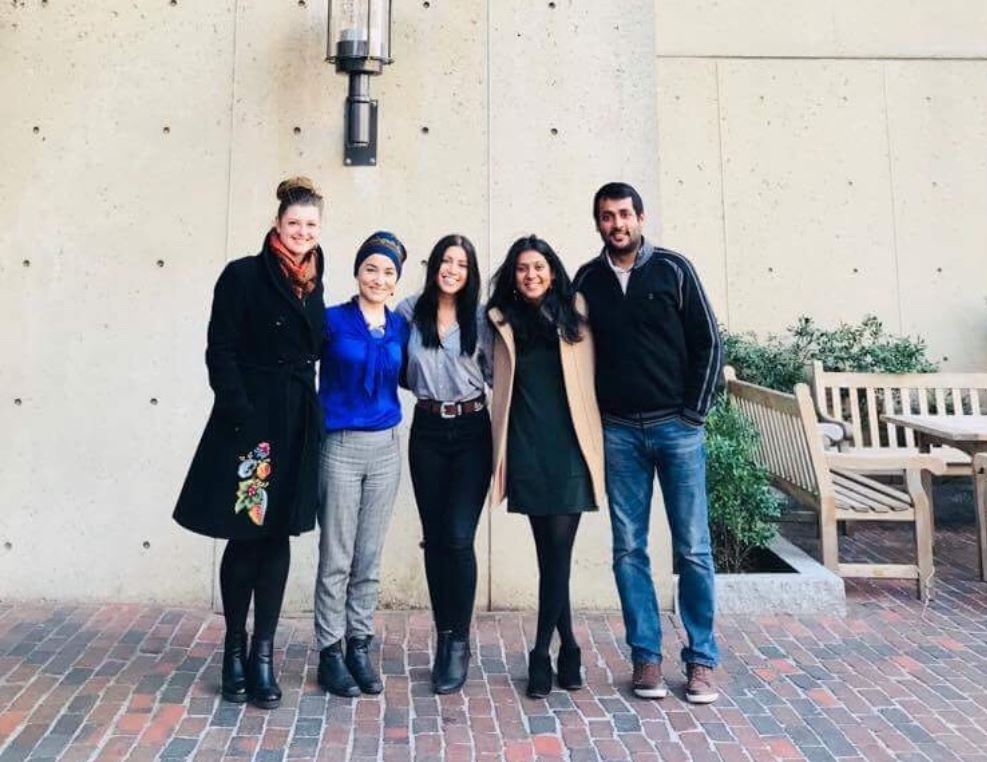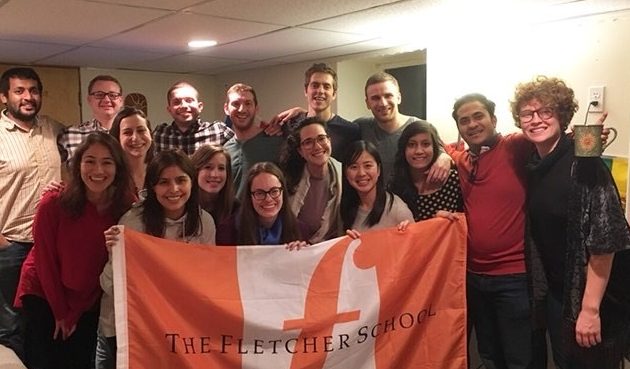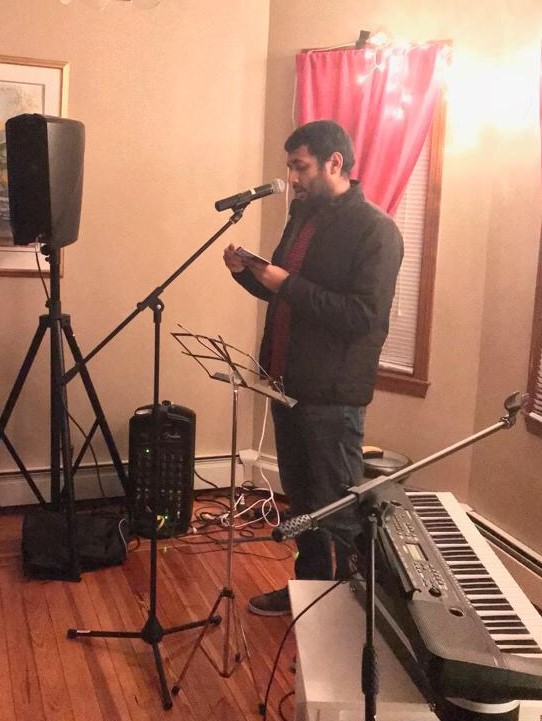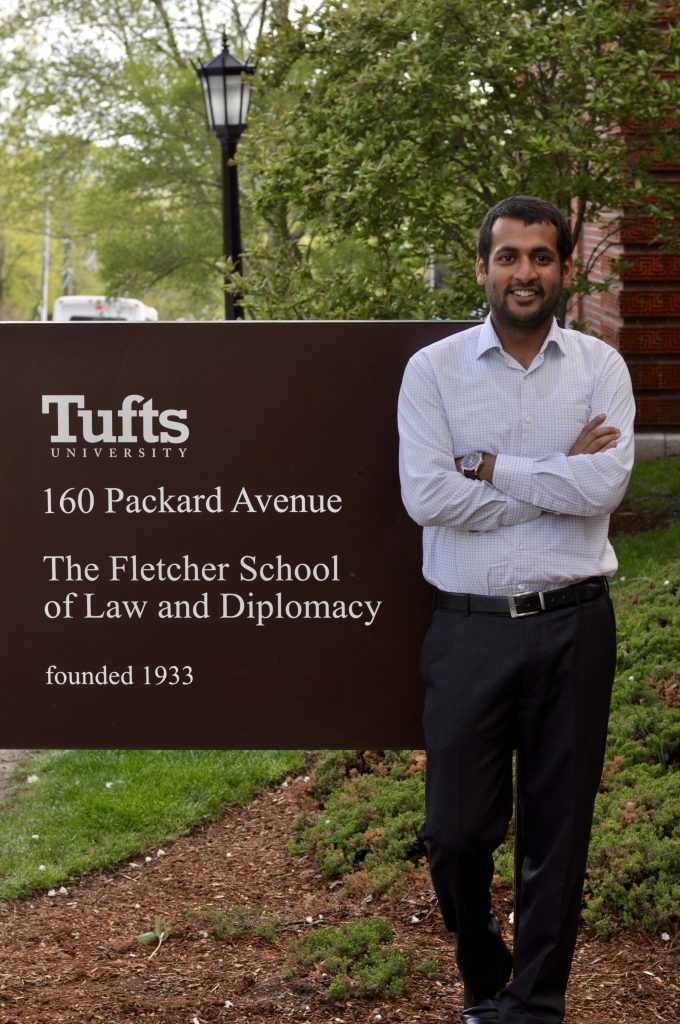Pulkit describes a challenging but satisfying semester
Before he wrote this fall-semester update, Pulkit asked me whether he could describe some challenges he experienced. That seemed like a great topic to me. Fletcher students work hard! And the Admissions Committee needs to ensure that every admitted student will succeed. Pulkit’s reflection captures nicely the balance that all students seek and the particular challenges faced by folks who are looking for an academic or career shift.
 As I sat down to write my last post before the end of 2017, I couldn’t fathom that I was about to finish three semesters at Fletcher. Since the day I received my letter of acceptance, it has been an exciting and rewarding journey of self-discovery.
As I sat down to write my last post before the end of 2017, I couldn’t fathom that I was about to finish three semesters at Fletcher. Since the day I received my letter of acceptance, it has been an exciting and rewarding journey of self-discovery.
Fletcher has given me opportunities to push myself to give my best, both inside and outside of the classroom. Apart from my regular academic work, a large portion of my semester was spent working as an elected Student Council representative. As a student representative, I ensured that I was hearing and giving voice to the concerns and suggestions of the student body. I thoroughly enjoyed working with the Office of Student Affairs, other administrative offices, and other student representatives to find constructive and sustainable solutions to issues related to student life and community at Fletcher. That being said, this role had its own set of challenges — including decision making, coalition building, and receiving criticism.

The other big commitment last semester was serving as the Managing Director for Digital and External Affairs for The Fletcher Forum of World Affairs. Apart from managing a team of staff editors and The Forum’s web page, along with the executive leadership, early efforts for this academic year included creating a new section of the website for student publications. The idea is to provide a platform for students to publish the stellar work they are doing in their classes, for their capstones, and otherwise. In addition, fellow Admissions blogger, Mariya, and I also facilitated a peer-to-peer learning series in partnership with the Murrow Center and Ginn Library. At Fletcher, my peers are amazingly skilled in soft and hard skills. To that effect we wanted to create learning opportunities for our fellow students and organized hands-on skill-based workshops in blogging, website design, and citations editing.

Speaking of academics, my evolving interests also drove me to take more classes in the International Law and Organizations and Diplomacy, History and Politics divisions and study a mix of Human Security and Humanitarian Studies courses.
After three semesters, I can’t help but also reflect on some of the challenges I have faced along the way, and I wanted to share some of those thoughts with readers. As I had mentioned in my first post back in November 2016, coming from a physical sciences background, it was indeed a huge step for me as I transitioned to pursue studies in social sciences. Most classes at the graduate level — at Fletcher and at Harvard — involve a large amount of reading. With four classes, it became overwhelming to finish all the readings for a week. I found myself challenged to finish my assigned homework in time, especially with all the extra-curricular activities I was involved in. This was also a big change from what I was used to in the past, as most professors require us to finish the readings before a class.
Most of the classes are also discussion-based where students debate — be it on a particular article of international law and its potential implications on the ground or on a matter of policy. One of the significant challenges I encountered was having an opinion on issues that were gray. Before starting school, I had expected that solutions to complex world problems could be black and white.  Very quickly I learned that there could be multiple perspectives to and interpretations of a problem. I also realized why it was so very important to understand all sides of an argument before making conclusions, and — unlike math or physics — even if there was no conclusion or final answer, it was okay. In many of my classes I have been left with more questions than answers. As one student put it — perhaps that is what graduate school is all about, to have more questions than answers, but also to have the ability to ask the right questions.
Very quickly I learned that there could be multiple perspectives to and interpretations of a problem. I also realized why it was so very important to understand all sides of an argument before making conclusions, and — unlike math or physics — even if there was no conclusion or final answer, it was okay. In many of my classes I have been left with more questions than answers. As one student put it — perhaps that is what graduate school is all about, to have more questions than answers, but also to have the ability to ask the right questions.
Another element of a professional graduate program is networking. Fletcher has provided me numerous opportunities to meet and interact with illustrious alumni and important persons in the field of international relations. But it has not been easy to feel comfortable at networking — building relationships with different professors, attending conferences and reaching out to folks working in the areas of my interest. This again, was not something I was used to. With a little bit of self-encouragement and push from my peers, I try improving and being better at it.
Besides managing my time, finishing my homework and fulfilling my extra-curricular roles, these are interesting challenges to have and to look forward to. Overall, in retrospect, from taking classes across different disciplines with different professors, to learning about and from my classmates, and participating in activities on and off campus, my time at Fletcher has been such a joy and a life-altering experience.